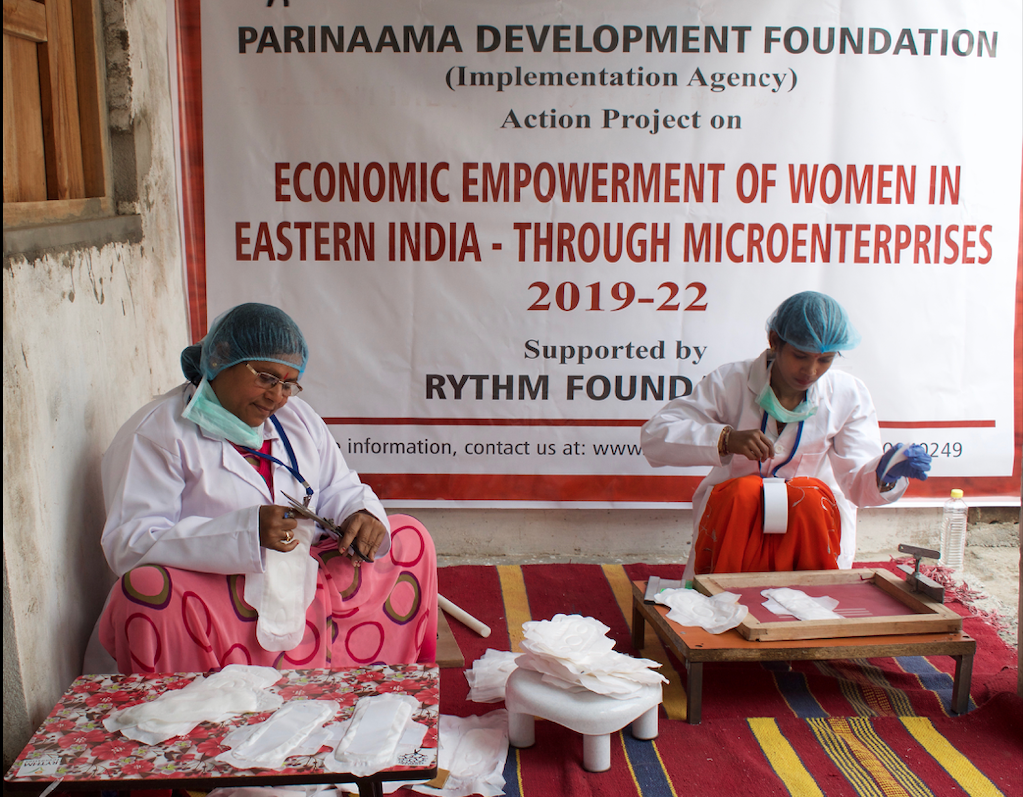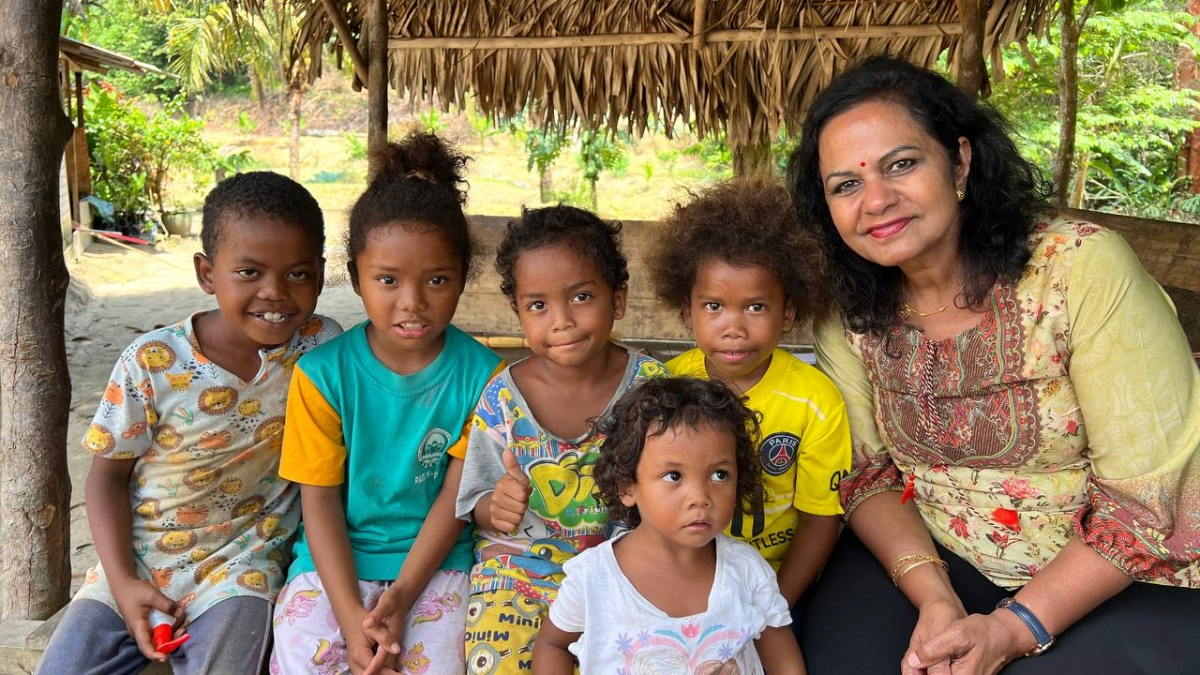Usha, 51, starts her day as early as 4 am, as she prepares breakfast and lunch for her family. Armed with her lunch box, the grandmother to six grandchildren rushes to get on the 5.30 am train from the Dumri station in Lakhisarai, to Bakhtiyarpur station, Bihar, India, a three-hour journey.
“It’s a passenger train and stops at every village on the way. The train is always overflowing with passengers and sometimes I don’t even get a place to sit during the long journey. But, if I miss this train, the next one will only come at 8 am and I will only reach my office at 11 am,” Usha said.
Usha is a staff of Parinaama Development Foundation, working as a lead trainer and manufacturer at a sanitary napkin production unit in a village about 100 km from where she lives.
The unit was set with in Patna, Bihar in India in 2019 the help of a grant from RYTHM Foundation to manufacture low-cost sanitary napkins. Usha and three other staff were trained by a nationally accredited organisation, Vyomini Enterprises, in partnership with National Small Industries Corporation, a Government of India enterprise, to manufacture sanitary napkins and run awareness campaigns on menstrual health, hygiene maintenance, disposal and safety.
Targeting women’s self-help groups, mothers’ support groups, frontline health workers and adolescents, the napkins are sold in a pack of 10 for Rs.40 (USD 0.5) to the nearby villages such as Athmalgola, Budhra and Usmanpur which have a large population.
The sanitary napkins are made using non-woven sheets and natural fibres which are biodegradable, antibacterial and completely hygienic.

“Talking about menstrual health management is tough in rural areas. Even as the unit was established to create access to low-cost sanitary napkins to the poor communities, it has been an uphill task to mobilise them,” Usha revealed.
The four women conducted short training sessions in the villages to expose the womenfolk in the area to the process of manufacturing and later engaged with them, speaking about menstrual hygiene and benefits of using a hygienic product.
“Some of the biggest challenges were to slice through the semi-feudal, patriarchal mindset where upward mobility of women and young girls is frowned upon,” Usha said.
The team then started working with the older women, visiting them often and building trust with them, eventually managing to convince them that their girls can access these products at a low cost.
To date, about 3,000 sanitary napkins have been produced by the team.
“The journey is still in its early stages. There is still a long way to go in scaling up the efforts to reach every woman in the reproductive age group in the catchment area,” she says.
Usha believes addressing the taboos surrounding menstrual hygiene should begin in a more formal environment such as schools and colleges.
“We plan to scale up the production as well as campaign activities this year and draw more women into the fold of our program. We also plan to deploy some marketing personnel who are already interfacing with the community such as the health volunteers, for long-term sustainability,” she said.
By 5 pm, Usha packs up and gets ready to take the train back home.
“What I love is being able to reach out and communicate to these women about these issues which are regarded as taboo here,” Usha said.
“It is a tiring job, but I love what I do and I’m happy to be able to help the women in my community,” said the grassroots programme worker who is passionate about female literacy and has also completed college education.
 “Talking about menstrual health management is tough in rural areas. Even as the unit was established to create access to low-cost sanitary napkins to the poor communities, it has been an uphill task to mobilise them,” Usha revealed.
The four women conducted short training sessions in the villages to expose the womenfolk in the area to the process of manufacturing and later engaged with them, speaking about menstrual hygiene and benefits of using a hygienic product.
“Talking about menstrual health management is tough in rural areas. Even as the unit was established to create access to low-cost sanitary napkins to the poor communities, it has been an uphill task to mobilise them,” Usha revealed.
The four women conducted short training sessions in the villages to expose the womenfolk in the area to the process of manufacturing and later engaged with them, speaking about menstrual hygiene and benefits of using a hygienic product.





